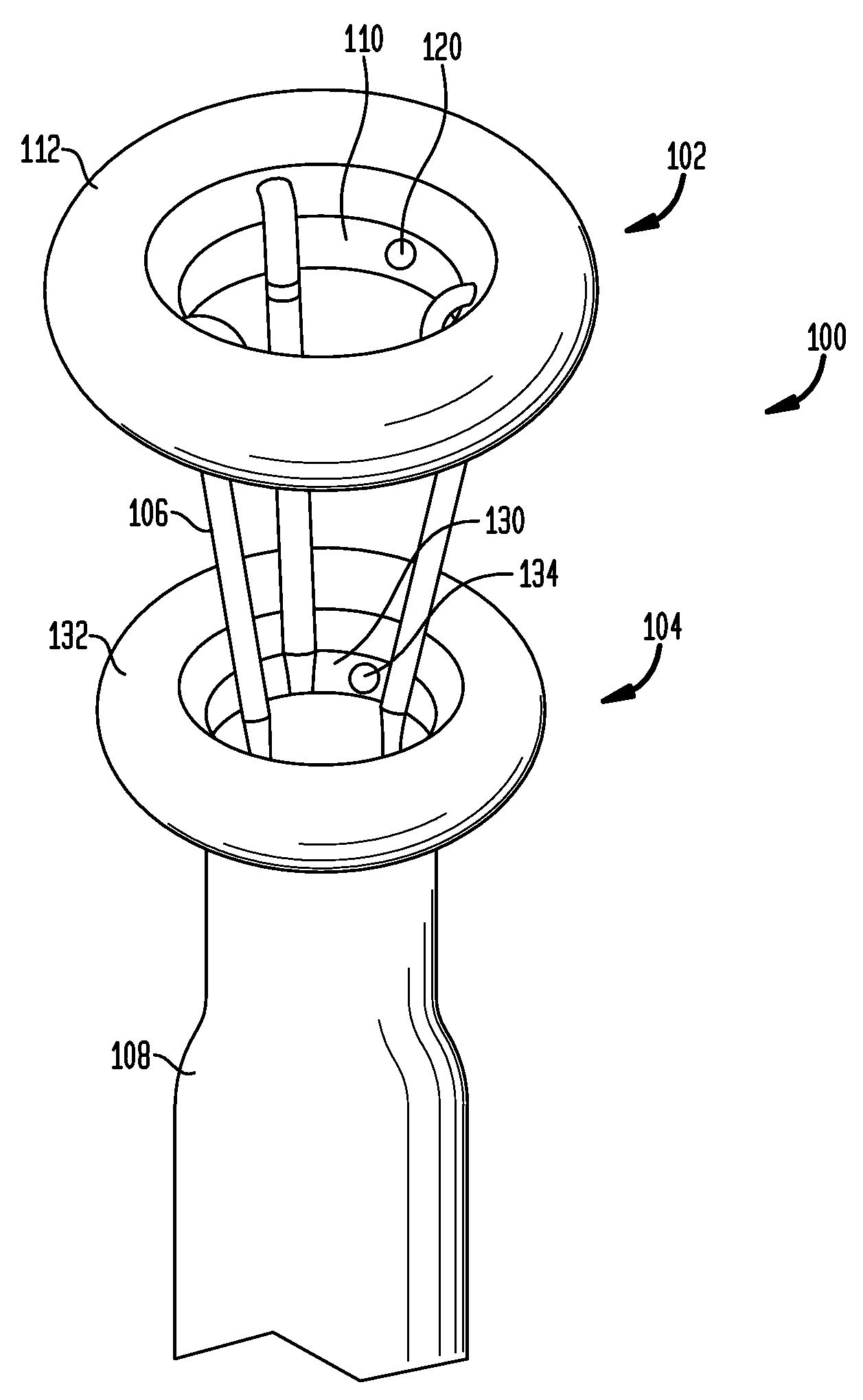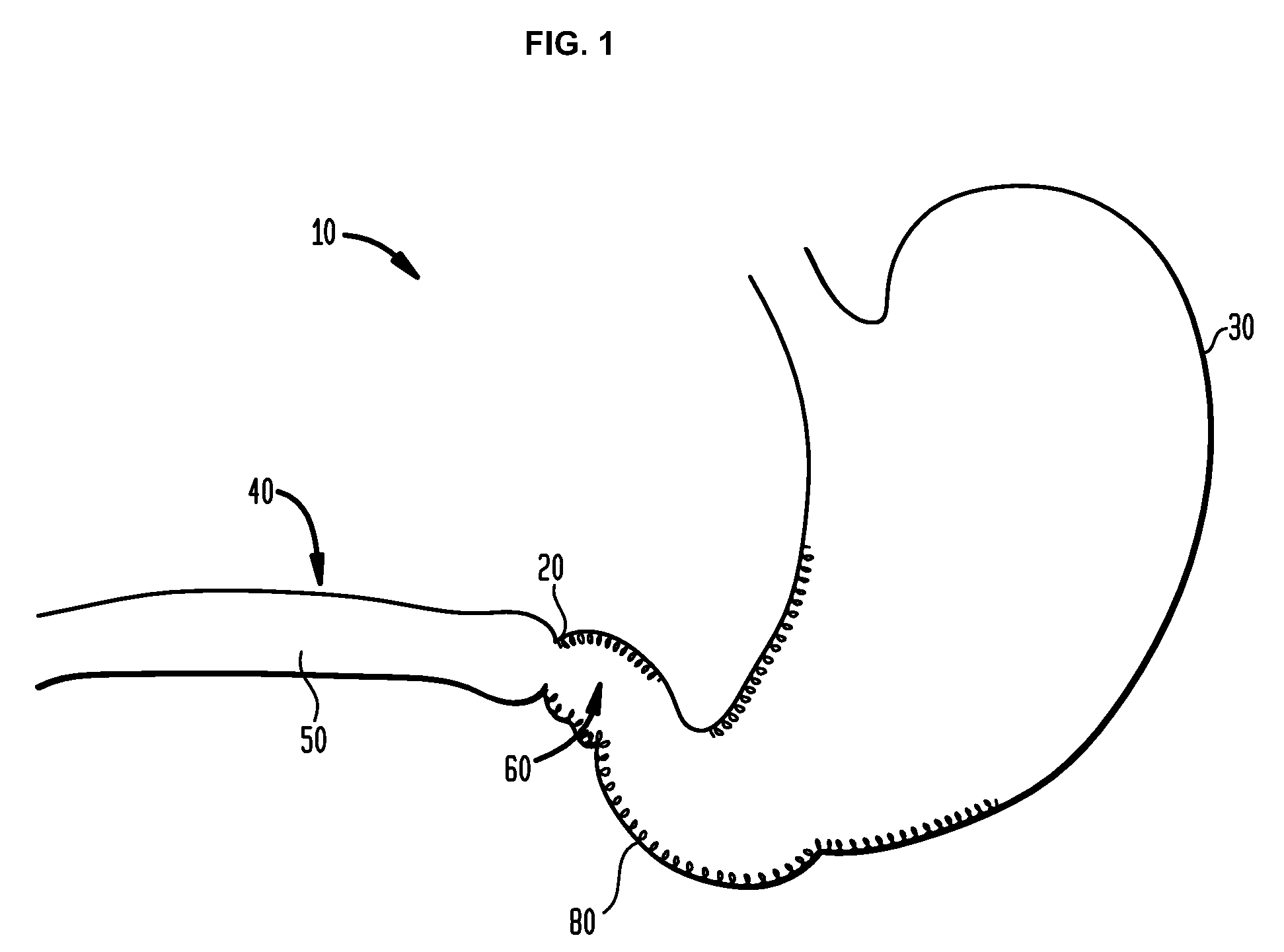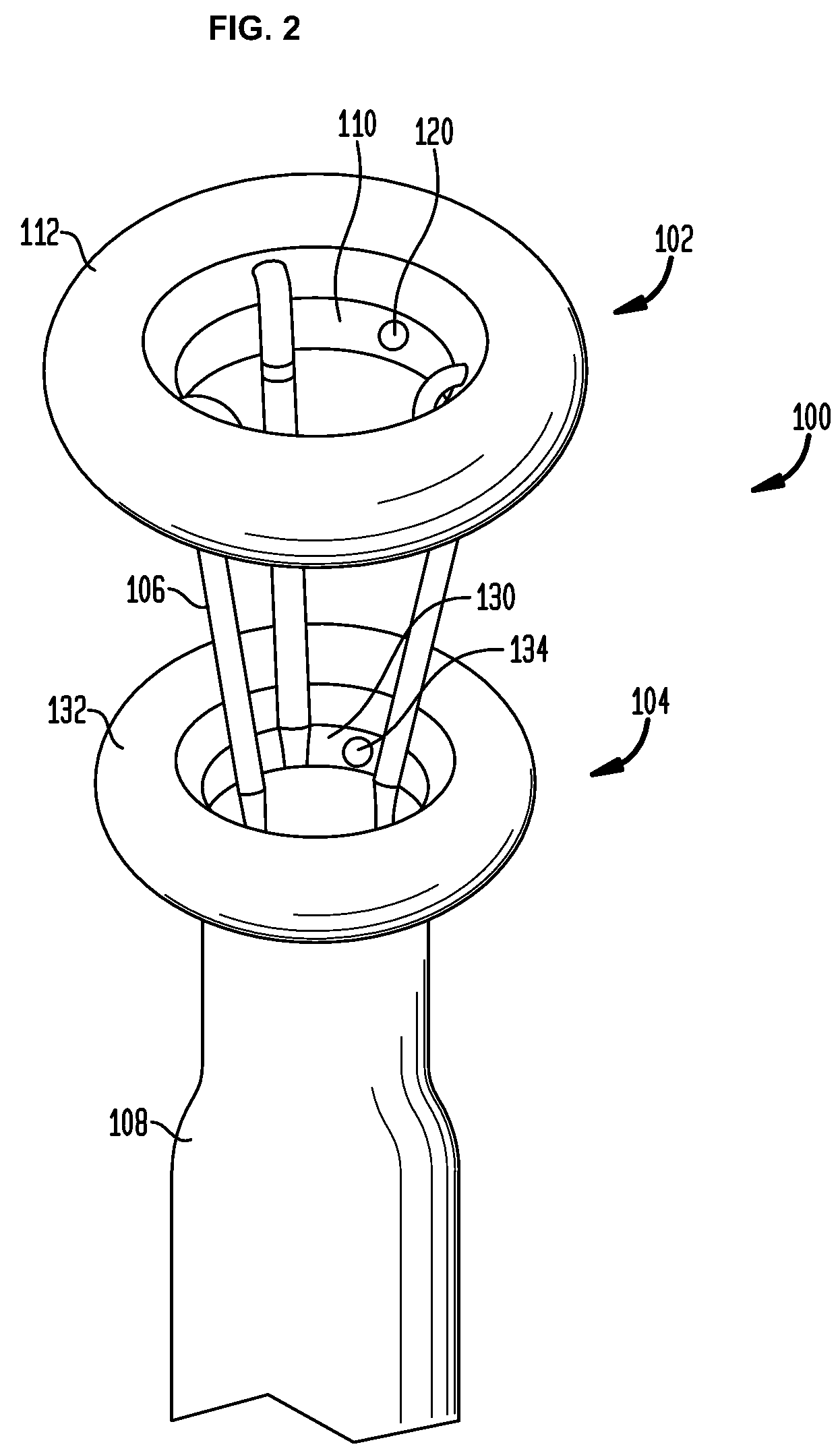Systems and methods for treatment of obesity and type 2 diabetes
a type 2 diabetes and obesity technology, applied in the field of obesity and diabetes, can solve the problems of reducing quality of life, limiting productivity, and significant medical costs, and achieves the effects of reducing collateral tissue damage, minimizing its impact on the digestive process, and sufficient tensile strength
- Summary
- Abstract
- Description
- Claims
- Application Information
AI Technical Summary
Benefits of technology
Problems solved by technology
Method used
Image
Examples
Embodiment Construction
[0046]In the present invention, systems, devices and methods are disclosed for treating and controlling obesity and / or type II diabetes. In particular, the systems and methods of the present invention provide an internal bypass of a proximal portion of the small intestines to inhibit contact between chyme and the bypassed small intestinal walls while allowing natural peristalsis to occur. The present invention is related to commonly assigned co-pending patent application Nos. 61 / 123,472 filed Apr. 9, 2008; 61 / 206,048 filed Jan. 27, 2009; Ser. Nos. 12 / 420,219 filed Apr. 8, 2009; 12 / 384,889 filed Apr. 9, 2009; 12 / 384,890 filed Apr. 9, 2009 and 12 / 384,898 filed Apr. 9, 2009, the full disclosures of which were previously incorporated herein by reference.
[0047]Diabetic foot ulcers are one of the major complications of diabetes mellitus. Foot ulcers occur in 15% of all patients with diabetes and precede 84% of all lower leg amputations. The significant increase in mortality among diabetic...
PUM
 Login to View More
Login to View More Abstract
Description
Claims
Application Information
 Login to View More
Login to View More - R&D
- Intellectual Property
- Life Sciences
- Materials
- Tech Scout
- Unparalleled Data Quality
- Higher Quality Content
- 60% Fewer Hallucinations
Browse by: Latest US Patents, China's latest patents, Technical Efficacy Thesaurus, Application Domain, Technology Topic, Popular Technical Reports.
© 2025 PatSnap. All rights reserved.Legal|Privacy policy|Modern Slavery Act Transparency Statement|Sitemap|About US| Contact US: help@patsnap.com



